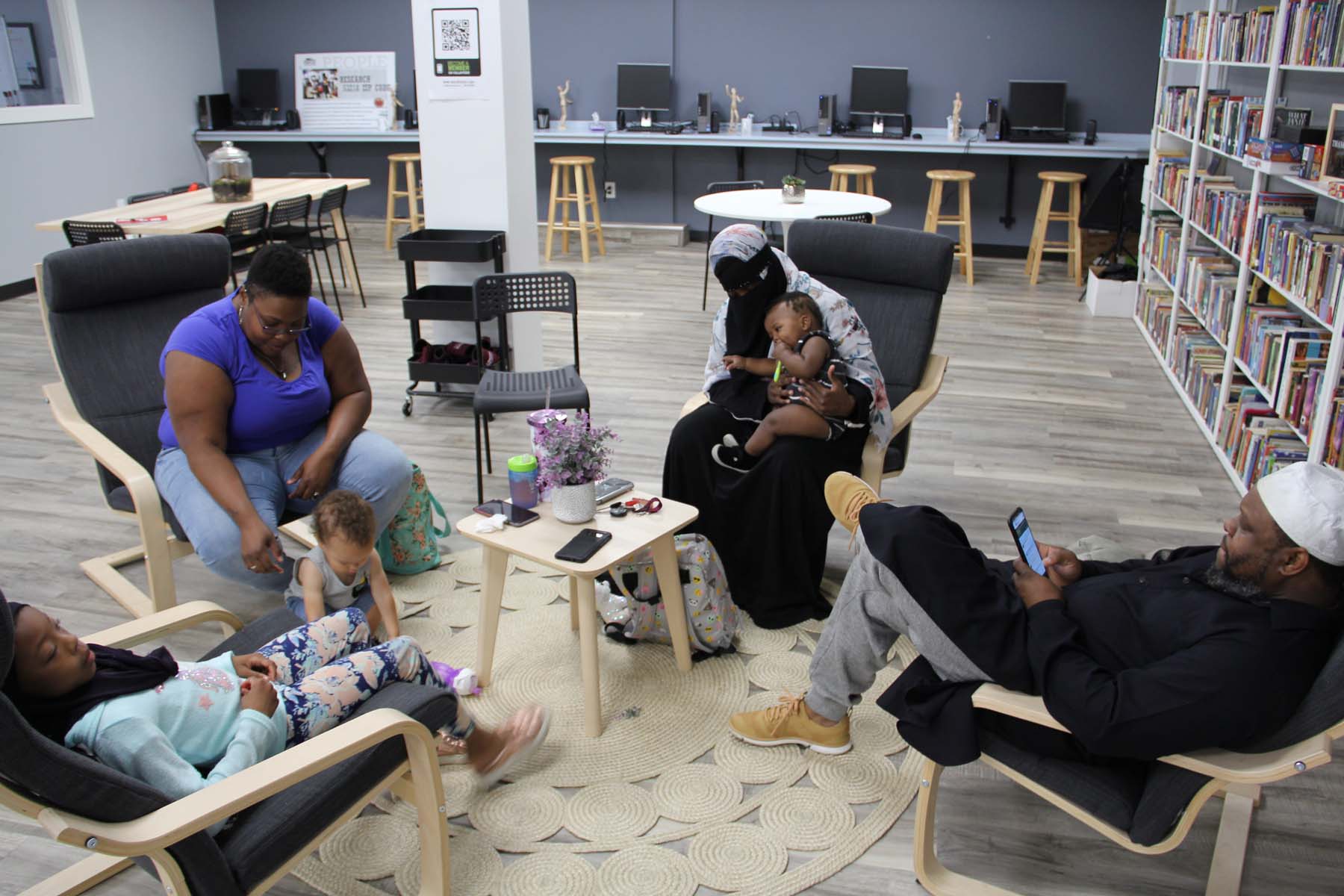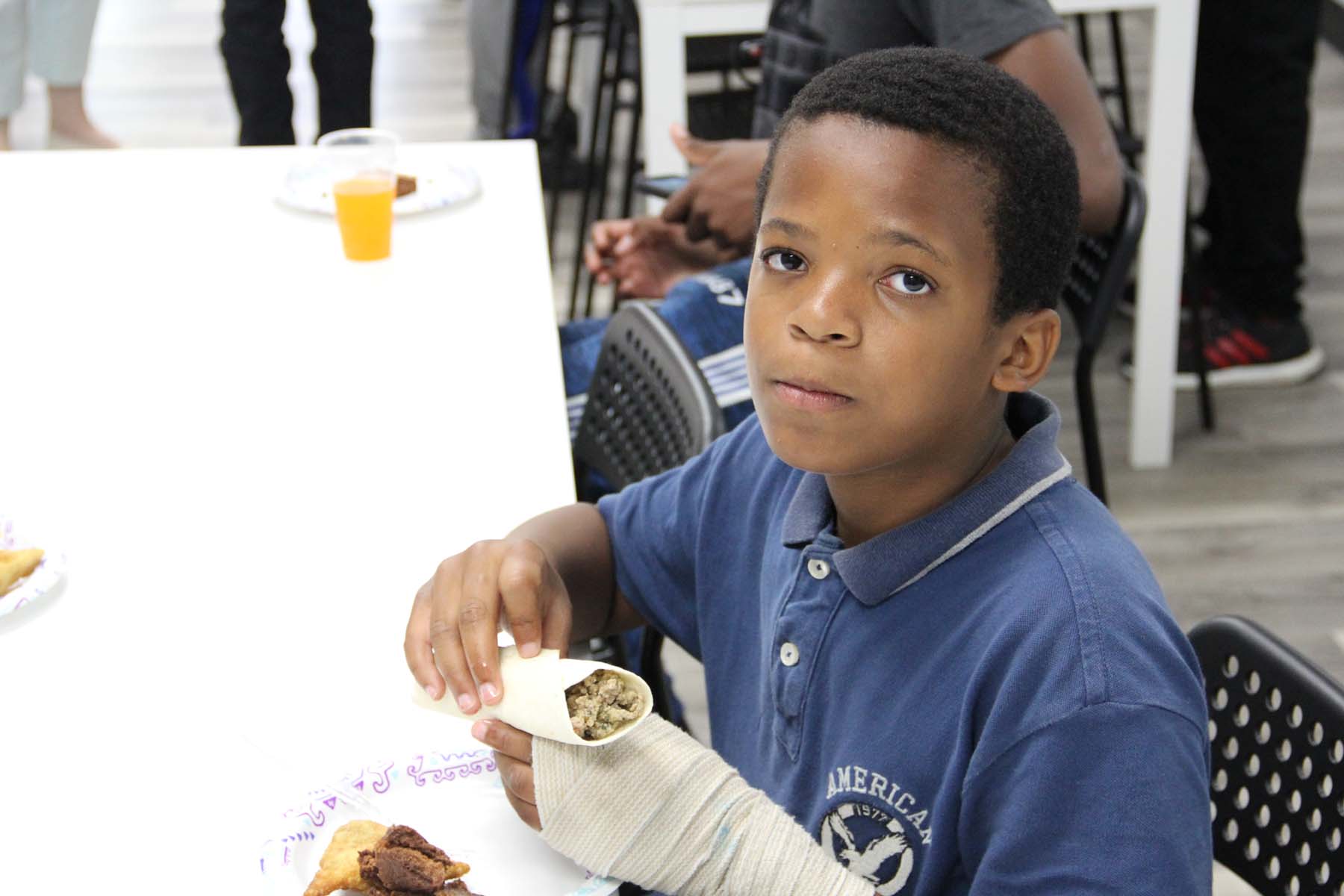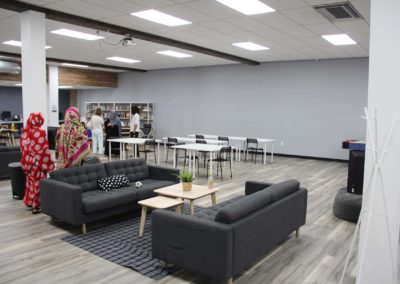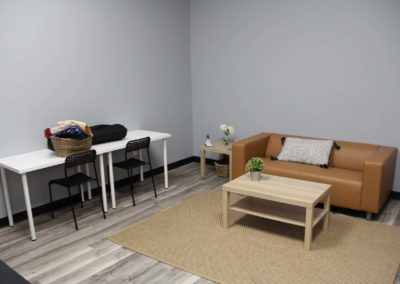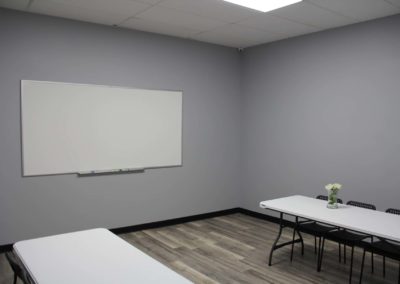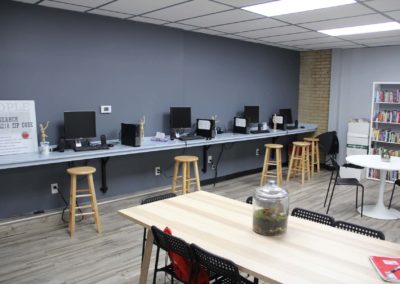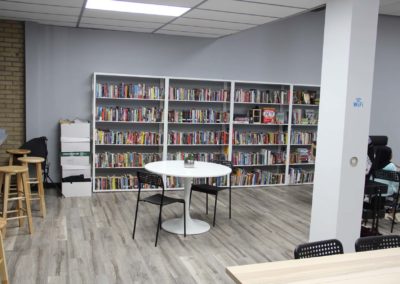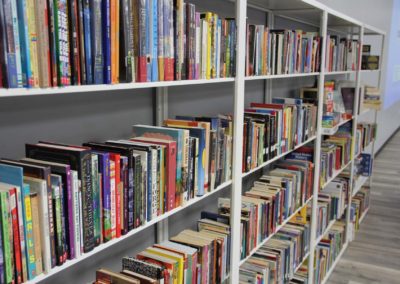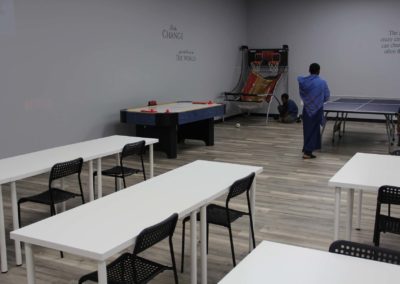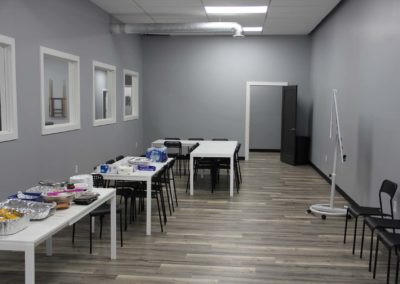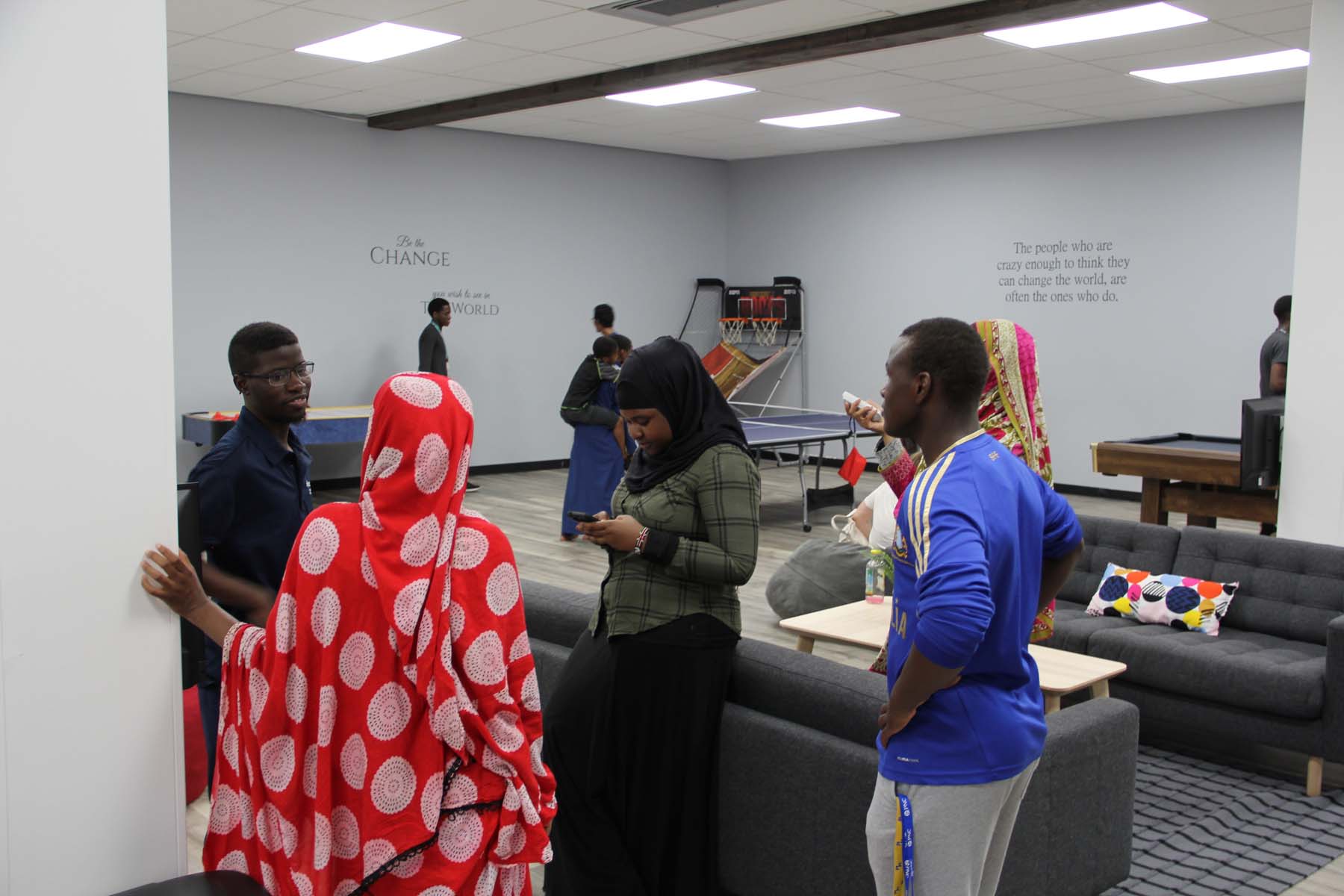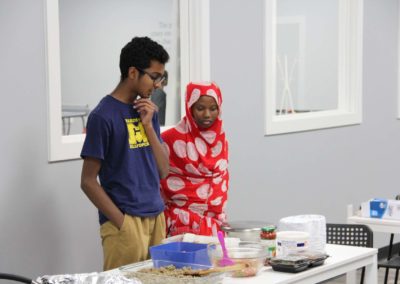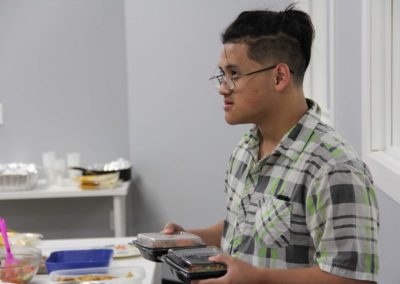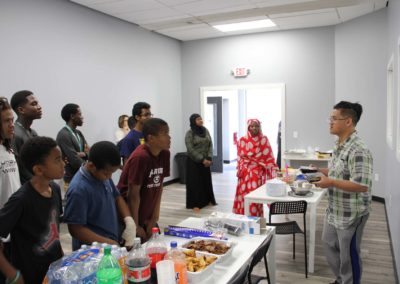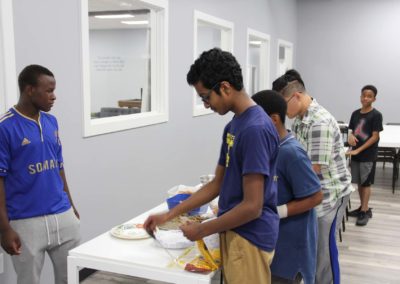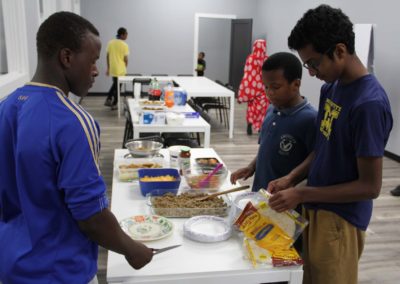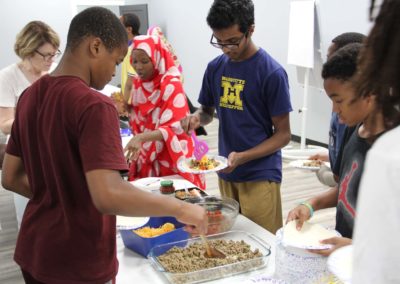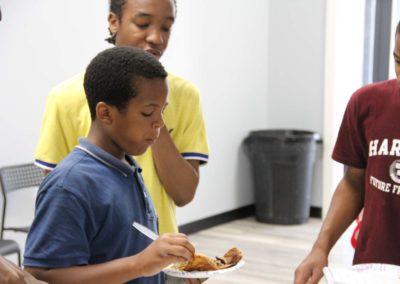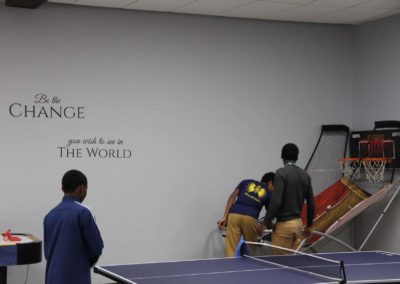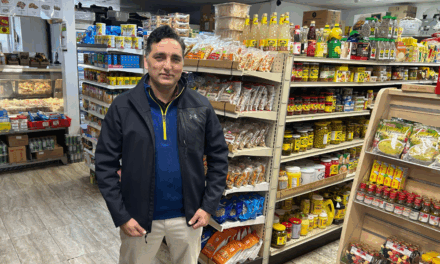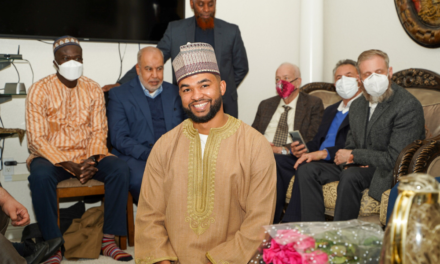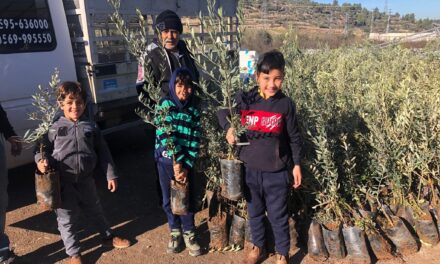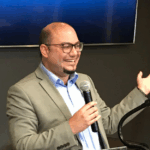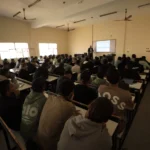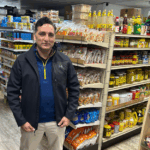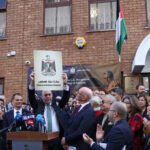© Photo
Yaseen Najeeb for the Wisconsin Muslim Journal
On a steamy Saturday afternoon on the far North Side of Milwaukee, two young people are selling roasted corn under an awning placed in one corner of the Ma’ruf Youth Innovation Center parking lot. Inside the newly renovated building, it is blissfully cool.
Boys play ping pong in a section of the main room called “the chill zone.” Ten-year-old Imran tells a visitor, “I helped build this place.” Asr, 13, says the boys helped with work on insulation, painting, and flooring.
They did a great job. The center is a state-of-the-art facility, clean, bright, and well-lit, with up-to-date technology, comfortable contemporary furniture, and a gym equipped with judo mats and three Everlast punching bags. A pool table, an indoor basketball hoop, and a flat-screen for playing video games (after homework) are also located in the chill zone.
Last Saturday was Culture Day at Ma’ruf and an opportunity to witness the center’s own brand of youth empowerment in action.
Taha, 15, a member of Ma’ruf’syouth council, says he is there to “have fun and hang out, talk about issues. Anybody can come, Muslim, Christian, Jewish.” The youth council works on “neighborhood clean-up, food packaging for the poor, sewing [projects] and ice breakers,” Taha says.
Sumayyah, 19, is a co-president (along with Abdirahman Ali Mohamed) of the youth council, and she takes time out from setting up the day’s event to give a visitor the grand tour. Besides the large main room, the facility includes a gym, a private room for counseling and mentoring, a library area with crowded bookshelves and a row of PCs for homework, bean bag chairs and sofas, and a circle of comfortable armchairs where a group of parents visit with each other.
Fatimah Al-Mujaahid, Sumayyah’s mom, is one of the parents, who are clearly not involved in telling the kids what to do, nor does anyone seem to need that intervention. “We helicopter sometimes,” she says. “But it’s a youth center. . . if we don’t prepare them [to lead], they won’t be prepared.”
Her own daughter seems well prepared to lead. Sumayyah teaches classes in Arabic and the Koran at the Da’wah Center. “I came here for volunteering and one of the moderators recommended me for the youth council,” Sumayyah says. Her father is Nazir Al-Mujaahid, Ma’ruf director of outreach in Milwaukee.
Sumayyah explains that the neighborhood that surrounds Ma’ruf is both “segregated and under-funded,” and there were no after-school or weekend programs for youth,“I didn’t have a safe space close to home that was free. Now we have this, and it’s amazing.” The Ma’ruf Center opened in January 2019.
Kids 8 and up “mainly come for tutoring. If you’re a high schooler and you need service hours, it’s the perfect thing to do,”Sumayyah says.Participation in youth council programs is for young people ages 12 to 24.” But “you can volunteer at any age,” she says.
The program for Culture Day will focus on a short video, a multi-ethnic buffet, and small-group discussions about cultural stereotypes.
The center begins to fill up with young people, including Abdi Mursal, the youth council public relations director, wearing a blue Adidas shirt with Somali crest. “I have not slept since yesterday,” he says. “I have been cooking, cleaning, making sure people are able to come. Then I rushed here to make sure everything is okay.”
After a very short film called “What is culture?”participants line up for the buffet. Sumayyah explains the dishes: tacos, samosas, and a Hmong green chili sauce brought by Ronald, 18. One of the younger kids jokes, “This is coke. Don’t drink it, you all.”
Maluwa Lugazo, 24, the youth council’s finance director, laughs, “We don’t got that in Africa, you all.” Maluwa made kallamudo, a Bantu dish of homemade noodles and beef.
The young people are having fun while being serious and engaged at the same time, but the most impressive thing about Culture Day is that it happens with no intervention by professionals.
Ma’ruf’s director of youth programming, Jesse Rosales,who has worked with young people for the past 13 years, told me that many youth programs today claim to develop leadership but only manage to “sound good on paper” and are mostly facilitated by adults. “What I find refreshing and fascinating about Ma’ruf is their interest in empowering young people.” He explained that Saturday’s event was entirely planned and organized by the youth council. The idea for the event was theirs, he says. The youth council chose the topic, the video, and the activities and ran the event.
After the movie, youth council members and their guests settle onto couches and around tables to discuss stereotypes and how they can be overcome.
Ronald asserts that, “Stereotyping is the result of human nature. It’s human nature to group things together.” Earlier, Ronald had shared with me that as a result of family turmoil he currently lives in a group home. But, he says, “that doesn’t define me.” His friendships at Ma’ruf helped him stabilize his life, and now, he says, “I want to give back to the community.”
Aayan, 11, wearing a Michael Jordan tee shirt and commanding the space on a tall stool, says he is “Sudanese, African-American, European, Mongolian, and Native American.”
That sets off a wave of competition to see how many nationalities each person can have. Taha, who says he is half-Arab, half-Indian, comments that, “Stereotypes are how you define someone by default on first contact. I think it happens to everybody. But if you become their friend, the stereotyping slowly diminishes.”
However, traditional culture remains a factor. Maluwa brought with her a group of Somali girlfriends and their children. And during the discussion, she comments that, “Most of my culture is live. We eat food off the stove, not the microwave.”
The young people have a surprisingly open-minded approach to the question. It’s an openness reflected in the atmosphere at Ma’ruf. Joseph, 16, a tall young man with his skateboard leaning against his legs, says, “This is my first time here, and it blew me away. It’s actually great.”
Ma’ruf has chapters in Chicago and Dallas as well as Milwaukee. With its motto of “Strengthening faith through action,” its perspective is distinctly Islamic.Weekdays, the center is open from 10:00 a.m. to 6:00 p.m. The space can be rented for special events like baby showers. However, certain rules do apply: no alcohol or pork may be served, Sumayyah explains. “Other than that,” she says, “just respect the space.”

